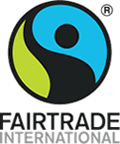Fairtrade Most Widely Recognized Ethical Label Globally: Global Poll
For more information please contact:
Reykia Fick, Media Relations Manager
Fairtrade International
+49 172 541 6076
r.fick@fairtrade.net
Oliver Martin, Director Global Development
GlobeScan Incorporated
+1 416 969 3073
oliver.martin@globescan.com
About the Survey:
The study was based on a quantitative survey delivered to a random sample of adult consumers using available online panels in each country. The survey countries included: Australia, Austria, Belgium, Canada, Czech Republic, Denmark, Finland, France, Germany, India, Ireland, Italy, Japan, Netherlands, New Zealand, Norway, Poland, South Africa, South Korea, Spain, Sweden, Switzerland, the UK, and the US. Fieldwork was conducted between 23 February 2011 and 24 June 2011. The total number of interviews per country ranged from 500 to 1,500. Tracking countries from the 2008 survey included: Australia, Austria, Canada, Denmark, Finland, France, Germany, Italy, Netherlands, New Zealand, Norway, Sweden, Switzerland, the UK, and the US. The international FAIRTRADE Certification Mark was tested in all countries except for the USA, where the local label was tested.
Fairtrade is a global movement and product certification with a people first approach to trade. Fairtrade offers farmers and workers a better deal and an opportunity to improve their lives and invest in their future. Over 6 million people (farmers, workers and their family members) in 60 countries directly benefit from the international Fairtrade system. National Fairtrade organizations promote Fairtrade to consumers in 25 countries across Europe, North America, Asia, Africa and Australia/New Zealand. Fairtrade International is a global non-profit organization that works with farmers and workers to improve lives through fairer trade. We lead the Fairtrade system, develop the Fairtrade Standards and support producers. Fairtrade International owns the FAIRTRADE Certification Mark, a registered trademark recognized around the world. For more information visit: www.fairtrade.net
About GlobeScan:
GlobeScan is an international opinion research consultancy. Companies, multilateral institutions, governments, and NGOs trust GlobeScan for its unique expertise in reputation research, sustainability, and issues management. GlobeScan provides global organizations with evidence-based insight and advice to help them build strong brands, manage relations with key stakeholders, and define their strategic positioning. GlobeScan conducts research in over 90 countries, is certified to the ISO 9001:2008 standard for its quality management system, and is a signatory to the UN Global Compact. Established in 1987, GlobeScan is an independent, management-owned company with offices in London, Toronto, and San Francisco. For more information visit www.GlobeScan.com
View the complete press release and graphs >>>>
FTI17538

